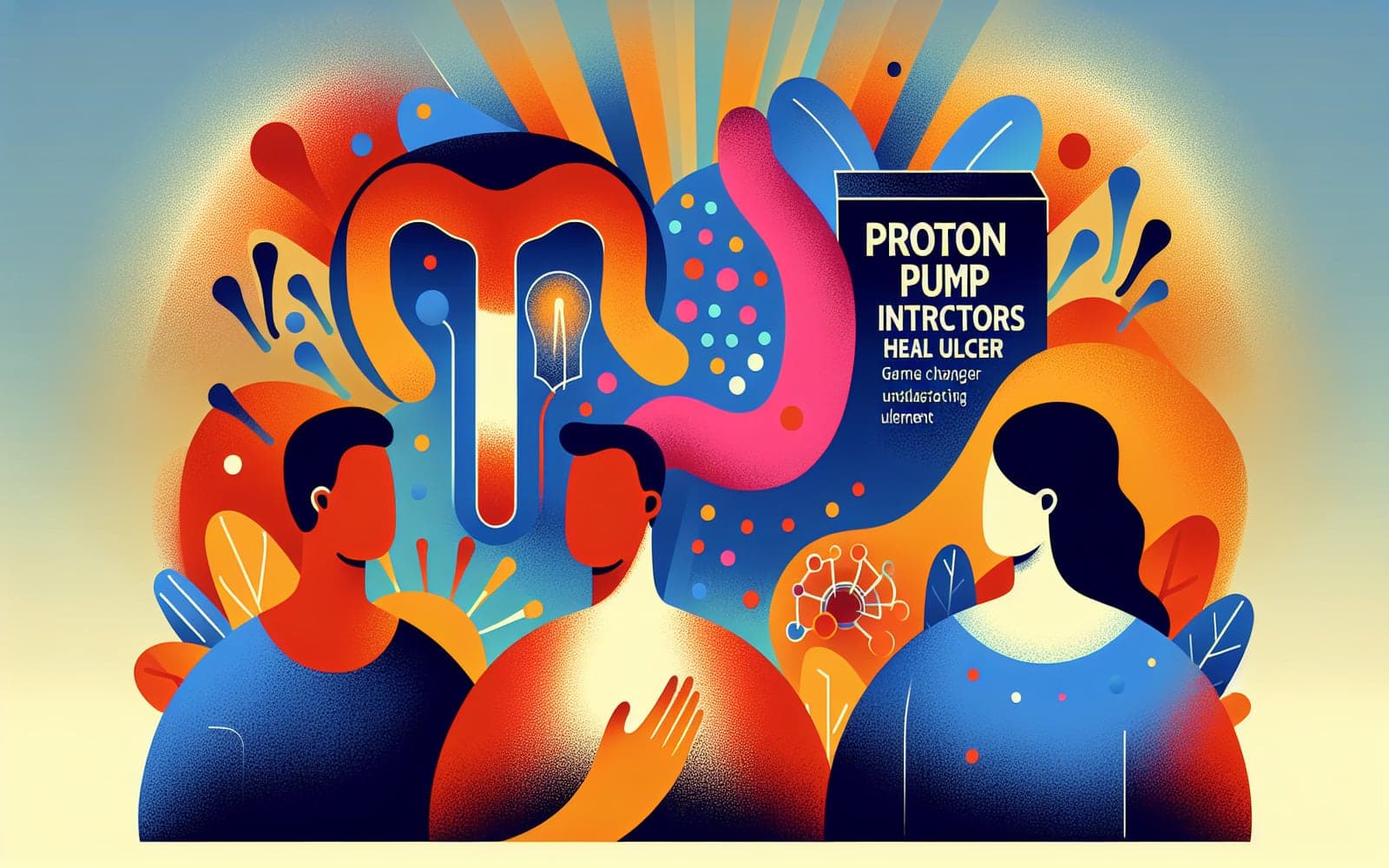How Proton Pump Inhibitors Heal Peptic Ulcers: A Game-Changer in Ulcer Treatment
Published: Aug 03, 2024

Medically reviewed by Alan Lucks | MD, Alan Lucks MDPC Private Practice - New York on August 3rd, 2024.
Proton pump inhibitors (PPIs) have revolutionized the treatment of peptic ulcers. These powerful medications can heal ulcers faster and more effectively than previous treatments, bringing relief to millions of sufferers.
Contents
How Do PPIs Work?
PPIs work by blocking the stomach's acid-producing pumps, dramatically reducing acid levels. This creates an environment where ulcers can heal naturally. Think of it like giving your stomach a break from acid production, allowing the damaged tissue to repair itself without constant irritation.
PPI Treatment for Ulcers
Doctors typically prescribe PPIs like omeprazole for 4-8 weeks to treat peptic ulcers. The exact duration depends on the ulcer's size and location. For most uncomplicated ulcers, a 4-week course is sufficient. However, larger ulcers or those in the stomach may require 8 weeks of treatment.

Advantages of PPIs Over Other Treatments
PPIs offer several advantages over older ulcer treatments like H2 blockers. They provide stronger and longer-lasting acid suppression, leading to faster healing rates. PPIs are also more effective at healing NSAID-related ulcers. For many patients, PPIs mean quicker relief from pain and a lower risk of ulcer recurrence.
Frequently Asked Questions
While generally safe, long-term use should be monitored by a doctor.
Most people tolerate PPIs well, but some may experience headaches or digestive issues.
PPIs can interact with some drugs, so always inform your doctor about all medications.
Key Takeaways
PPIs have transformed peptic ulcer treatment, offering faster healing and symptom relief for most patients.
Wondering if PPIs might help your ulcer symptoms? Consult with Doctronic to learn more about this effective treatment option.Related Articles
References
Scally B, et al. Effects of gastroprotectant drugs for the prevention and treatment of peptic ulcer disease and its complications: a meta-analysis of randomised trials. Lancet Gastroenterol Hepatol 2018; 3:231.
Yeomans ND, et al. A comparison of omeprazole with ranitidine for ulcers associated with nonsteroidal antiinflammatory drugs. N Engl J Med 1998; 338:719.
This article has been reviewed for accuracy by one of the licensed medical doctors working for Doctronic. Always discuss health information with your healthcare provider.

